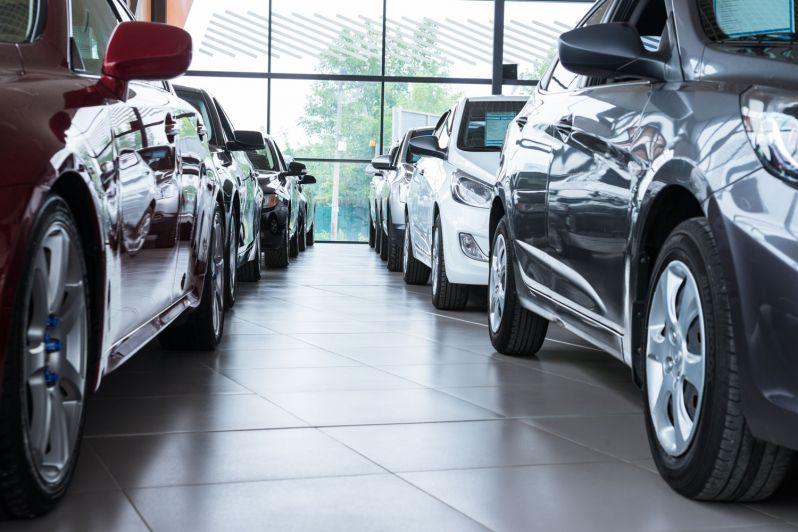Stepping into the car market is exciting but can feel overwhelming, especially when financing comes into play. Maybe you’re eyeing an upgrade from an older vehicle, or you’re considering treating yourself to a model you’ve always wanted. Here’s where your credit score plays a pivotal role—it influences your loan terms, affecting your monthly payments and overall budget.

A higher credit score can unlock lower interest rates, making your car more affordable over time. On the other hand, a lower score may limit your loan options or lead to higher costs. Knowing how your credit score affects financing helps you choose a car that fits both your needs and your budget.
Buying a car is a significant decision, one that should align with your financial health. By grasping how your credit scores influence the buying process, you’re better positioned to negotiate financing options and secure a deal that complements both your desires and your budget.
Check Your Credit Before You Start Car Shopping
Before you start shopping for a car, check your credit report to see where you stand. This goes beyond knowing your score—it’s about making sure the information auto lenders see is accurate and puts you in the best possible position for financing.
Know Your Credit Score and What It Means for Your Loan
Getting a handle on your credit score early in the car buying process can give you a solid idea of what financing options might look like for you. Many credit card companies and financial services offer free access to your credit score.
Additionally, websites and apps dedicated to personal finance management can provide this service at no cost. This score is a critical factor in determining the interest rate you’ll be offered on a car loan, so knowing it helps you estimate your car buying budget more accurately.
Look for Errors That Could Hurt Your Financing Options
Mistakes on your credit report can negatively impact your credit scores, potentially resulting in less favorable loan terms. Annually, you’re entitled to a free credit report from each of the three major credit bureaus—Equifax, Experian, and TransUnion—through AnnualCreditReport.com.
Scrutinize each report for inaccuracies, such as incorrect accounts, payments mistakenly reported as late, or any fraudulent activity. If you spot errors, initiate a dispute with the respective credit bureau. Correcting these inaccuracies can improve your credit score, potentially leading to better loan terms.
How Lenders View Different Credit Score Ranges
While your credit score gives a snapshot of your credit health, knowing how auto lenders view different score ranges can help you set realistic expectations. Here’s a quick guide to what those ranges typically mean:
- Excellent Credit (750-850): Indicates to lenders that you’re a low-risk borrower, likely qualifying you for the lowest interest rates and best financing terms.
- Good Credit (700-749): Suggests you’re a reliable borrower, with a strong chance of receiving competitive loan offers.
- Fair Credit (650-699): Shows lenders you may have had some credit hiccups, but you’re generally a responsible borrower. You might face slightly higher interest rates.
- Poor Credit (550-649): May limit your loan options and result in higher interest rates, as lenders view you as a higher risk.
- Bad Credit (Below 550): Indicates significant credit issues, making it challenging to secure a loan without high-interest rates or the need for a cosigner.
See also: How to Get a Car Loan in 6 Easy Steps
Preparing to Finance a Car
Securing financing is a key part of buying a car, and being prepared can make the process smoother. Here’s what to focus on when getting your finances ready for a car purchase.
The Minimum Credit Score Needed for a Car Loan
Lender requirements for car loans can vary significantly, influenced by factors such as the type of vehicle you’re purchasing (new or used) and the lender’s policies. While there’s no universal minimum credit score to qualify for a car loan, credit scores above 600 are often seen as the baseline for consideration. However, some lenders specialize in bad credit car loans, but these typically come with higher interest rates.
It’s also worth noting that the best rates are usually reserved for borrowers with credit scores above 700. To maximize your loan options and secure more favorable terms, it’s beneficial to have your credit score as high as possible before applying.
Average Interest Rates by Credit Score
Your credit score directly impacts the interest rate you’ll receive on a car loan. Here’s a general guideline of what to expect, based on credit score ranges:
| CREDIT RATING | USED CAR RATE | NEW CAR RATE |
|---|---|---|
| Excellent | 3.53% | 2.7% |
| Good | 5.09% | 3.67% |
| Fair | 8.18% | 5.49% |
| Poor | 14.15% | 9.25% |
| Bad | 18.33% | 12.42% |
These ranges are approximate and can vary based on the lender, the economy, and other factors. Shopping around and comparing offers will allow you to get the best rate for your situation.
Getting Preapproved for a Loan
Loan preapproval is a powerful step in the car buying process, offering several benefits:
- Budget clarity: Pre-approval provides a clear picture of what you can afford, allowing you to shop for cars within a specific price range.
- Negotiating power: Walking into a dealership with a preapproved loan can give you leverage in negotiations, as you’re effectively a cash buyer.
- Rate shopping: Getting preapproved by multiple lenders lets you compare rates and terms without impacting your credit scores significantly, thanks to the rate shopping window that most credit scoring models allow for credit inquiries.
To get preapproved, you’ll need to submit a preliminary application to lenders, who will perform a soft credit check to estimate the loan amount, term, and interest rate they can offer you. This process doesn’t bind you to a lender but gives you an advantage when you’re ready to make a purchase.
Budgeting for Your New Car
An important step in the car buying process is setting a realistic budget that aligns with your financial situation and goals. This ensures that your new car is a source of joy, not financial strain. Let’s discuss how to determine your budget, choose the right loan term, and estimate your monthly payment.
Determining Your Budget
The first step in budgeting for a new car is to assess your overall financial health and establish how much you can afford to spend. A widely recommended guideline is the 10% rule, which suggests that your car payment should not exceed 10% of your gross monthly income. This rule helps ensure that your car purchase doesn’t overburden your finances, leaving room for savings, other debts, and unexpected expenses.
To apply this guideline, calculate your monthly income before taxes and deductions. Then, determine 10% of this amount to get an idea of a manageable monthly car payment. Remember, the cost of car ownership extends beyond the monthly payment to include fuel, insurance, maintenance, and registration fees, so factor these into your overall budget as well.
Choosing the Right Auto Loan Term
The term of your auto loan has a significant impact on your monthly payments and the total interest you’ll pay over the life of the loan. Common loan terms range from 36 to 72 months, with some lenders offering terms up to 84 months for new cars.
Opting for a longer duration can reduce your monthly expense, albeit at the cost of paying more interest over time. Conversely, a shorter span means higher monthly costs but a reduction in the overall interest paid.
Choosing the right duration depends on your monthly budget and how quickly you want to pay off your car. If you can afford higher payments and wish to minimize interest charges, opt for a shorter loan term. If monthly cash flow is a concern, a longer term may be more manageable, but be aware of the higher total cost.
Expected Monthly Payments
Estimating your monthly car payments is essential for sticking to your budget. You can use an online car loan calculator to get a rough idea of your payments. These calculators require you to input the loan amount, interest rate, and term. The interest rate will vary based on your credit score, with higher credit scores generally securing lower rates.
For example, if you’re looking at a $25,000 car and have a good credit score, you might qualify for an interest rate of around 4.5%. On a 60-month loan, your monthly payment would be approximately $466. This calculation does not include taxes, fees, or insurance, so remember to account for these additional costs in your budget.
Final Considerations Before Buying
Purchasing a new car comes with its share of excitement and responsibilities. Before you commit, here are some final considerations to ensure you make a choice that’s in line with your financial health and long-term happiness.
Buying Within Your Budget
The allure of a shiny new car can sometimes lead us to stretch our financial limits. However, the importance of sticking to a budget cannot be overstated. Remember that the true cost of car ownership extends beyond the sticker price or monthly payment—it includes insurance, maintenance, fuel, and possibly parking and toll fees.
Ensuring these expenses comfortably fit within your budget without compromising your ability to save or meet other financial obligations is key. If you find yourself tempted by a car that’s just outside your budget, it might be worth reassessing your needs versus wants or considering a slightly older model that’s more affordable.
How much of your paycheck should go towards your car payment?
As a rule of thumb, the 10% guideline is a solid benchmark for financial health, suggesting that no more than 10% of your gross monthly income should go towards your car payment. This guideline helps to prevent overextending your finances, ensuring you have enough room for savings, investments, and other expenses. Remember, financial flexibility and security are more valuable in the long run than any car.
Bottom Line
When buying a car, your credit score plays a major role in the financing you qualify for. It affects your loan terms, interest rate, and the overall cost of ownership. That’s why it’s smart to prepare your credit, get pre-approved, and stick to a budget.
Aim to keep your car payment under 10% of your gross monthly income to avoid stretching your finances too thin. Make decisions based on what you can realistically afford—doing so will help you secure a car that fits your lifestyle without putting your financial goals at risk.
Frequently Asked Questions
Can improving my credit score quickly help me get a better car loan rate?
Yes, improving your credit score can lead to better loan rates. Even small increases in your score can make a difference. Pay down debts, make timely payments, and correct any errors on your credit reports to boost your credit scores.
What should I do if I’m denied a car loan based on my credit score?
If you’re denied a car loan, review the reasons provided by the lender. Focus on improving those areas, such as paying down existing debt or correcting errors on your credit reports. Consider applying with a co-signer or looking into lenders that specialize in loans for individuals with a lower credit score.
How often should I check my credit score before applying for a car loan?
Check your credit scores a few months before you plan to apply for a car loan. This gives you time to address any issues or improve your credit scores if necessary. Checking your scores regularly through credit monitoring services can also help you stay on track.
Is it better to finance a car through a dealership or a bank?
It depends on your personal situation. Dealerships may offer more convenience and promotional financing rates, but banks might provide more competitive interest rates for those with good credit history. Compare offers from both to find the best deal for you.
Can I negotiate the interest rate on my car loan?
Yes, you can often negotiate the interest rate on your car loan, especially if you have a good credit score or pre-approval from another lender. Don’t hesitate to ask for a better rate or shop around to leverage the best possible deal.




